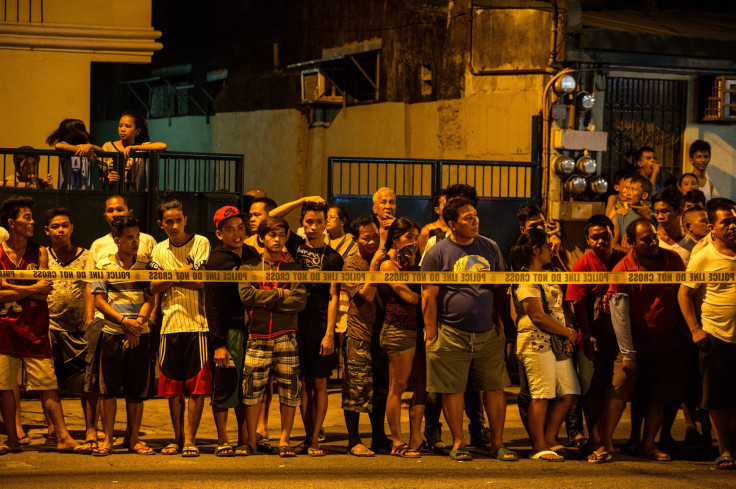Duterte War On Drugs: Philippines Police Plant Drugs And Weapons On Victims To Justify Extrajudicial Killings, Says Report

Human Rights Watch (HRW), a civil rights watchdog group, has accused the Philippines police of planting evidence to justify extrajudicial killings carried out as part of President Rodrigo Duterte’s war on drugs. Since last summer, over 7,000 people have been killed in Duterte's drug war.
A report titled "License to Kill," released by HRW on Wednesday, investigated 24 incidents involding the Philippine National Police that took place between October 2016 and January 2017, resulting in 32 deaths. The report, which includes interviews with family members of victims, witnesses to police killings, journalists, and human rights activists, suggests that police asserted self-defense when questioned about the drug-related killings and regularly planted guns, spent bullets or drugs on the bodies of their victims.
“Police often claim that a drug suspect opened fire on them and was then killed in a shootout. But we found instead that people are being executed and framed by the police, who plant guns and drugs on the bodies. The gunmen wear masks and try to make sure there are no witnesses, but we met some people who saw the shooting and planting of evidence. This is an organized, government-sanctioned campaign of executions of drug suspects,” Peter Bouckaert, Human Rights Watch’s emergencies director, said in a statement.
Commenting whether the crisis could have been predicted, Bouckaert said that the warning signs very fairly evident.
“When he ran for president last year, he promised a nationwide anti-drug campaign, warning voters that 'tens of thousands of people' would be killed and vowing to 'make the fish in Manila Bay grow fat on the victims.' He even said he would match Hitler by killing millions,” he explained.
The HRW report also called his war on drugs campaign a crime against humanity.
“The president, senior officials, and others implicated in unlawful killings could be held liable for crimes against humanity, which are serious offenses committed as part of a widespread or systematic attack on a civilian population,” said the report.
The report recommended an independent United Nations investigation, an end to the war on drugs, an internal investigation, and a boycott of any form of assistance to the Philippine National Police until such investigations are completed.
© Copyright IBTimes 2024. All rights reserved.












